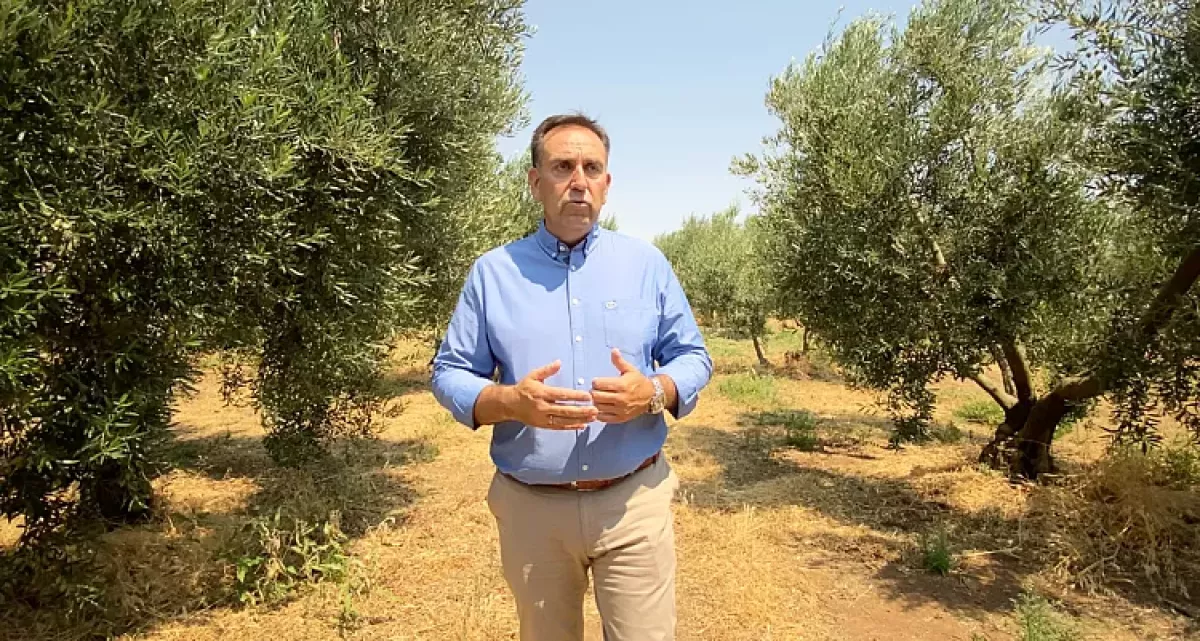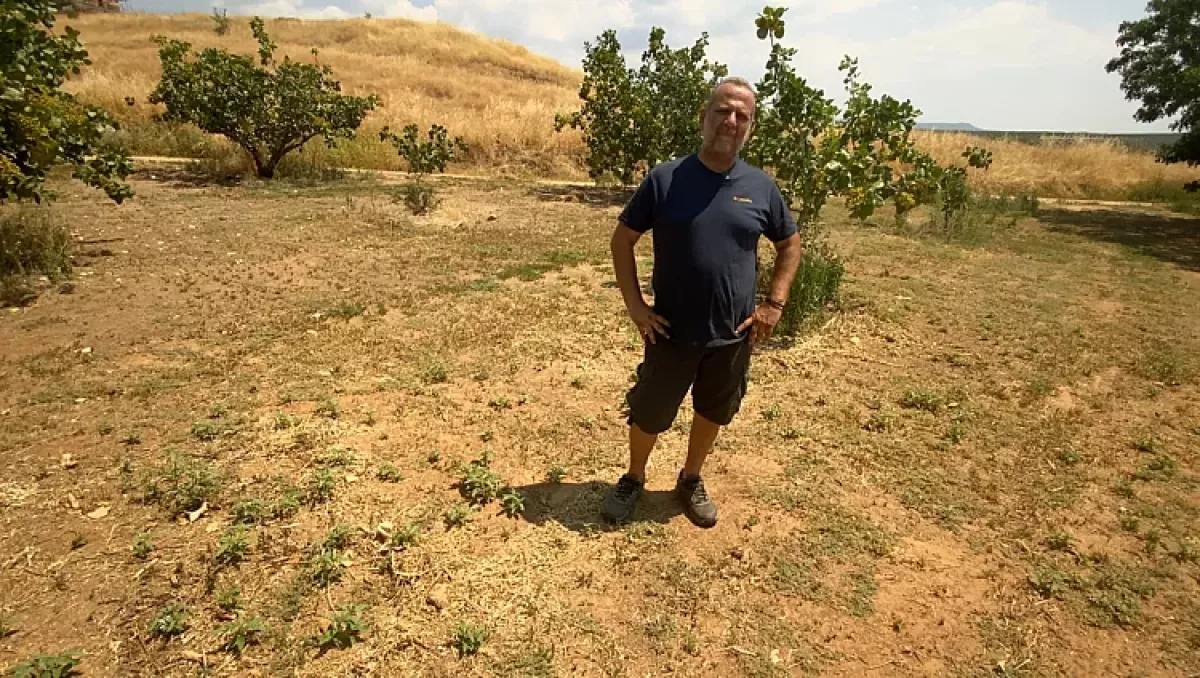Greece faces fourth year of drought: Farmers question state, EU response
Certain regions in Greece are enduring their fourth consecutive year of drought, with water scarcity hitting consumers and multiple sectors of the economy — particularly agriculture. Euronews travelled to the north of the country to assess whether national authorities and the European Union are doing enough to help.
For olive grower Giannis Koufidis, last year was catastrophic. His harvest was so poor that most of the crop was diverted to the oil market, which is far less profitable. This year shows only marginal improvement. When Euronews visited, it had not rained for two months.

“Due to the climate crisis, this olive variety has faced many serious issues. Mainly due to lack of water, but also due to increased winter temperatures, which don’t provide trees with the hours of cold they need to become fruitful. This results in too many trees not bearing olives,” Giannis explained.
With air temperatures reaching 37ºC and soil moisture barely at 50%, Giannis has been forced to invest in an expensive irrigation system. But he admits this is putting further strain on underground aquifers.

Just 20 kilometres away, pistachio farmer Dimitris is facing similar challenges. Together with a co-owner, he manages 630 trees but sees little support from authorities.
“Nothing has been done in terms of educating farmers in proper water management. We don’t even have precision agriculture systems. Everyone makes his own head,” he said. “The state should have already done something so that we could have avoided the problems we’ve already faced. For the last 15 years, bells have been ringing. We Greeks have always learned to live in hope, and water is hope.”
In some regions, agriculture and farming consume up to 90% of water resources, often through outdated and inefficient infrastructure. Industry and tourism are also competing for scarce supplies.
Facing mounting pressure, the Greek government has pledged urgent investments and a complete overhaul of its water management agencies. At the European level, the recently published Water Resilient Strategy advocates for modernising infrastructure through public and private funding, alongside the use of digital solutions.
But will this be enough?
Euronews put the question to Elpida Kolokytha, Head of one of the UNESCO Centres for Integrated and Multidisciplinary Water Resources Management and Professor of Civil Engineering at the Aristotle University of Thessaloniki.
“It is not that we don’t have water resources. It means that we are not using them in the proper way. We need to do more because we are living in a new normal. The new normal is that because of climate change, we experience floods and droughts very, very often. So first we need to update our data,” she said.
Are the 2000 EU Water Directive and subsequent Greek legislation enough to provide solutions?
“We’ve made a lot of progress. Of course, still we have inefficiencies in the governance. In Greece as well,” Kolokytha replied. “The solution of the problem is a combination of both hydraulic engineering projects together with some soft structural measures: as water conservation or water education campaigns, but also leakage control.”
The European Commission’s Water Resilient Strategy sets a goal of reducing consumption and improving efficiency by 10% across the EU by 2030.
By Sabina Mammadli








